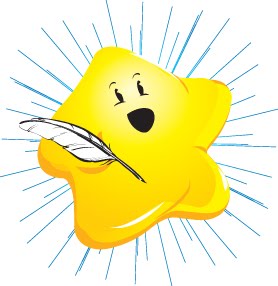A glance at any local paper throws up a fine crop of furious residents and heart-broken pensioners. Avoid such clichés. Journalists use clichés for speed - and sometimes out of laziness. Either way, the words and images have been used so often that - in comparison with their former vibrant selves - they are milksops. This is the writing equivalent of crying ‘Wolf!’ And you’re better than that.
Writing Game
- Read something published.
- Underline the clichés.
- Find words, phrases, imagery which you judge more vivid and apt – making the piece in your view a superior version of the published work
- Take a piece of your own writing and do the same.
On the other hand, educating the editor is not your job, either. The editor represents the reader and the standard of English he promotes is on a par with the standard of English of the readership. He/She may have favourite words. An editor of a national magazine was once hooked on the word, 'clement', and this produced, as George Orwell would have said, some ‘barbarous’ prose. But it is not your place in life to correct busy people.
You may however permit yourself the occasional flight of fancy. The Girl with the Dragon Tattoo author Stieg Larsson’s translator Reg Keeland uses the word, Gallimaufrey, to mean medley. Originally meaning a hash of odds and ends of food (see OUP, The Shorter Oxford English Dictionary), the word is rarely used in spoken English today. Hmm, sad. And would you be the one to tell him?
Writing Game
- Read a good dictionary
- Find seven new words of the calibre of gallimaufrey– as quaint, archaic, poetic, tuneful . . .
- Try to introduce one of these into your conversation as often as possible, each day for a week.

